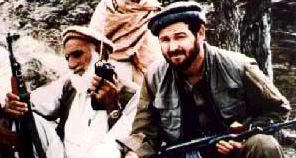Playing Chess with Russia and Iran
It’s fundraising week here at emptywheel. If you can, please support what we do.
The WSJ reports that the US just doesn’t get Vladimir Putin (even while explaining that Putin is legitimately miffed that US and its allies conducted regime change after claiming they wouldn’t in Libya).
The tension between the two powers has been aggravated by a series of miscalculations and misunderstandings. U.S. officials acknowledge they have struggled to understand Mr. Putin, a former KGB agent. Russia, for its part, bristles at what it sees as the U.S. tendency to use humanitarian abuses as cover to remove regimes it doesn’t like, such as in Libya.
It then lists all the big toys Putin’s got in the Mediterranean.
Mr. Assad’s arsenal of advanced Russian-made weapons systems, including a recent shipment of upgraded Yakhont antiship missiles, has made Pentagon planning for the strikes more difficult, U.S. officials say. As a precaution, the U.S. Navy is keeping its destroyers far from the Syrian and Lebanese coast lines and out of range, the officials say. Lebanon is home to Syria’s close ally, Hezbollah, which also has sophisticated antiship rockets.
As of Thursday, Russia had two warships, two support vessels and three amphibious troop and equipment movers off the Syrian coast, which U.S. officials say they believe are tracking American military movements in the area to share with the Syrian regime. U.S. officials say they believe Russian satellites and radar sites are also feeding information to the Syrian regime.
Given their professed inability to understand Putin, and given the extent of the military show of force he’s making, then why the hell are they so sure this won’t spin out of control?
Here’s one potential worst case scenario.
If the Obama administration takes authorization from Congress and moves directly towards military action against Syria, the lack of a coalition is a significant condition that increases the strategic risk to the United States. Iran and Syria will recognize that this may be the only opportunity they will ever have to take on the United States without a broader coalition of support, and as such see this as their best opportunity to strike. In stepping through Red Team’s calculations, consider how exposed the US truly is.
1) The United States has no coalition, so a targeted, direct strike against the United States in “self defense” significantly limits the degree to which the international community will respond in support of the US. The UK vote highlights that politically, the rest of the world does not stand with a belligerent United States in a unilateral military action.
2) The United States is strategically and politically exposed and military forces throughout the region are spread thin. There are no troops in Iraq. Sequestration has significantly degraded the capacity of the US military across the entire Department of Defense towards fielding an effective reserve. Political cover by Russia and China will be available to Syria after the the US attacks.
3) Military objectives by Blue Team are not well defined, while military objectives by Red Team are well defined. All evidence suggests the leadership of the United States does not take seriously the threat of counterstrike. Russia has openly stated they will provide intelligence, surveillance, and reconnaissance to help Syria, and that presumably would also be for support of military action in counterstrike.
4) Successful counterstrike against the United States will be celebrated regionally, resulting in significant restrictions of movement within the region by US military forces and a collapse of US political credibility broadly. Local pressure can be exploited by red team on regional military installations to restrict movement of US assets in the region.

